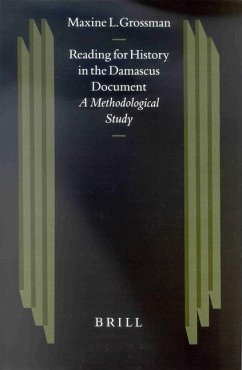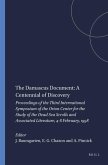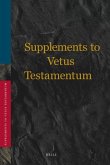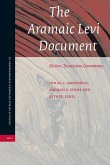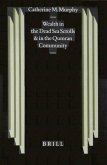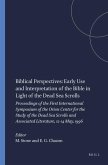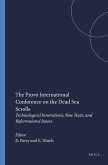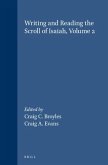Scholars tend to view the Damascus Document as a historical source, but a reading of the text in light of contemporary (audience-oriented) literary criticism finds its emphasis in the ideological construction of history and communal identity, rather than in the preservation of a historical record. An introduction to contemporary literary criticism is followed by a series of thematic readings, focusing on historical narrative, priestly imagery, and gender in the covenant community. Each theme is examined in terms of its potential for multiple (sometimes contradictory) interpretations and for its place in the larger sectarian discourse. This study offers an alternative approach to the historiography of ancient Jewish sectarianism, acknowledging the presence of competing claims to shared traditions and the potential for changes in textual interpretation over time or among diverse communities.
Hinweis: Dieser Artikel kann nur an eine deutsche Lieferadresse ausgeliefert werden.
Hinweis: Dieser Artikel kann nur an eine deutsche Lieferadresse ausgeliefert werden.

